Argentina’s riot police clash with protesters in capital’s streets over president Javier Milei’s reforms
Riot police in Argentina unleashed water cannons and fired tear gas outside the National Congress building in Buenos Aires at protesters opposing state overhaul and tax bills proposed by president Javier Milei.
However, the Senate approved the sweeping reforms, delivering an initial legislative victory to the libertarian leader in his efforts to deliver on his promises of radical change.
The Senators voted 37 to 36 late Wednesday to give their overall approval to the overhaul bill after 11 hours of heated debate as protesters urging lawmakers to reject Milei’s harsh austerity measures clashed with the police outside Congress.
The lawmakers still must approve individual measures in an article-by-article vote that will stretch throughout the night.
The legislation delegates broad powers to the president in energy, pensions, security and other areas and includes several measures seen as controversial, including a generous incentive scheme for foreign investors, tax amnesty for those with undeclared assets, and plans to privatise some of Argentina’s state-owned firms.
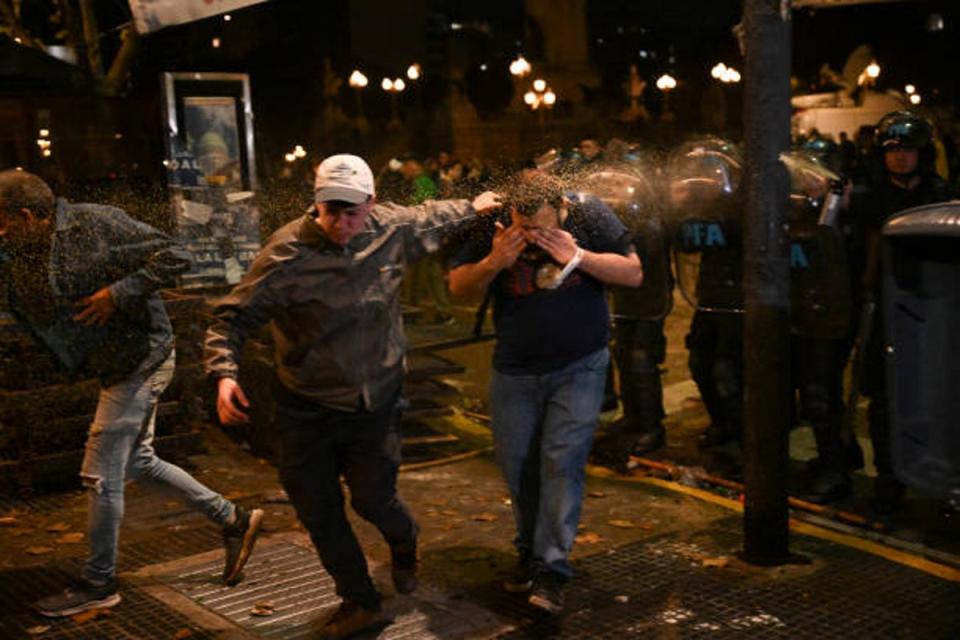
The bill – already approved in the Chamber of Deputies – includes a declaration of a “public emergency in administrative, economic, financial and energy matters for a period of one year”, giving legislative powers to Executive Branch and would not need the approval of the Congress, reported CNN Espanol.
If the Senate approves the articles with modifications, the lower house still has to okay them before Mr Milei can claim passing his first law since entering office last December.
Earlier, a carnival atmosphere prevailed around Congress as protesters blasted trumpets, dancing and buying beer and grilled meat from impromptu street barbecues. However, it quickly turned violent as crowds jostled and shoved against a column of police armed with shields and batons.
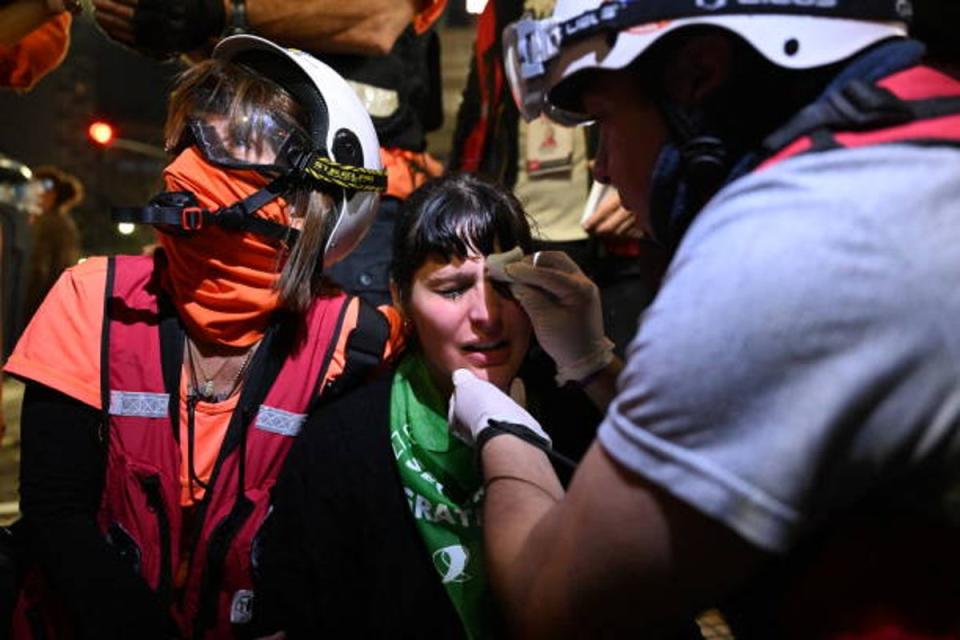
Police used pepper spray to clear a line of demonstrators, sending at least five opposition lawmakers to the hospital, according to the left-wing Peronist party, Unión por la Patria.
“A sad day for Argentinian democracy,” said a social media account of the party. “Absolute repudiation of the repression perpetrated by the police”.
Scenes of chaos played out in streets surrounding the central square as demonstrators from different social groups voiced their protest against the proposed reforms.
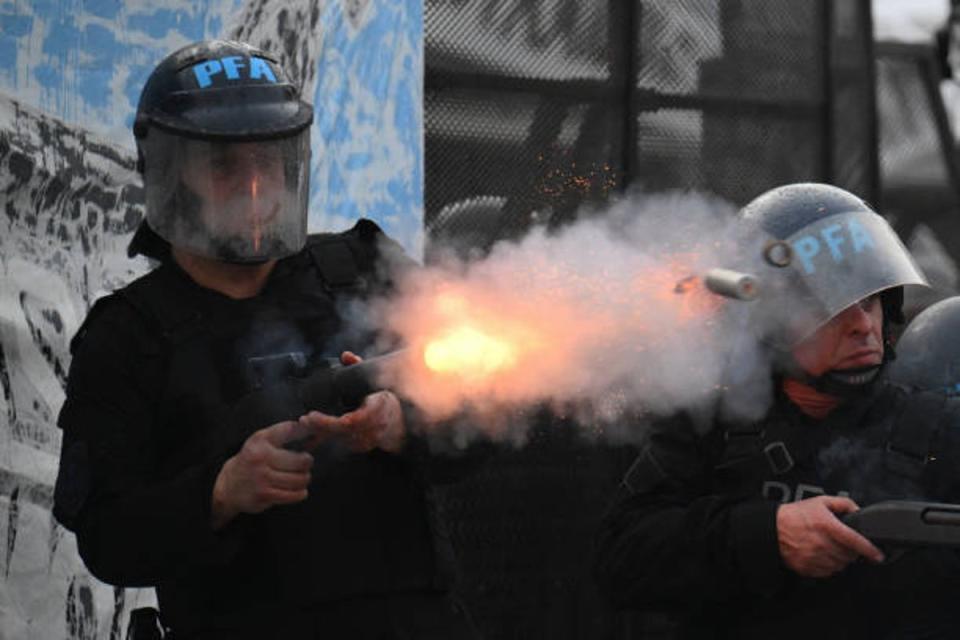
The presidency issued a statement condemning the protesters as "terrorists" who "tried to mount a coup d’etat by attacking the normal functioning of the Argentine National Congress".
"The only thing the old guard knows how to do is put spokes in the wheel," Mr Milei said on Wednesday at a conference for a right-wing think tank at the Hilton Hotel in Buenos Aires. "We are going to change Argentina, we are going to make it the most liberal country in the world."
The fiery right-wing economist rose to power on promises he would resolve Argentina’s worst economic crisis in two decades, with annual inflation climbing toward 300 per cent and a recession deepening.
But his political party of relative novices holds just a tiny minority of seats in Congress and he has struggled to strike deals with the opposition.
Senators approved two bills, a tax package that lowers the income tax threshold and a 238-article state reform bill that passed the lower house of Congress in late April after weeks of negotiations.
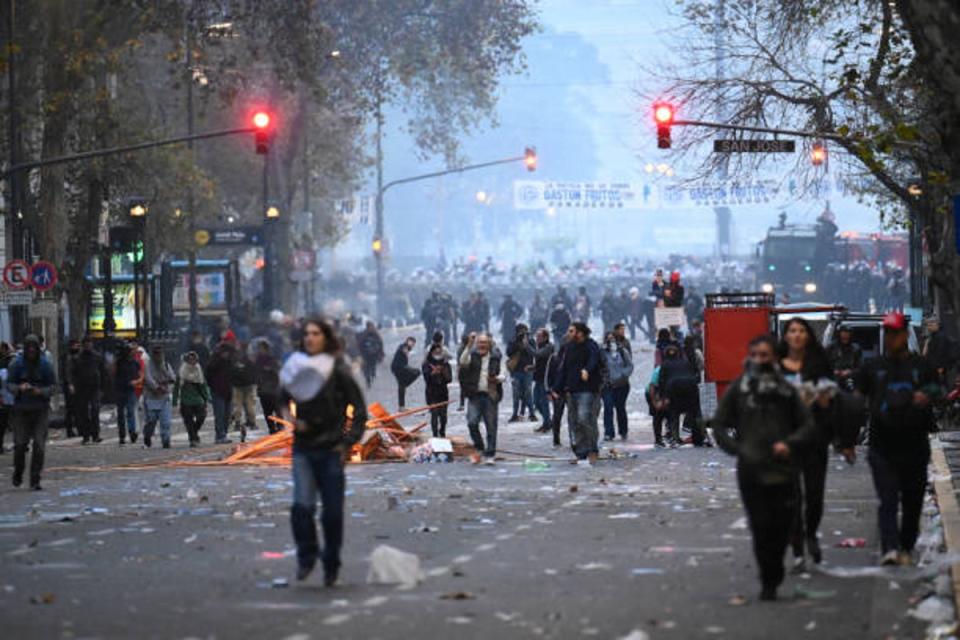
Initially dubbed the "omnibus bill" because of its more than 600 articles, the watered-down version at hand still delegates broad legislative powers to the president in energy, pensions, security and other areas.
Certain touchy subjects, such as unions’ provision of health care and the privatisation of Argentina’s national oil company, have been scrapped in hopes of reaching a compromise.
Unlike previous Argentine leaders since the return of democracy in 1983, Mr Milei has failed to pass a single piece of legislation during his first six months in office. Instead, the populist outsider has relied on executive powers to slash state spending and sweep away economic restrictions.
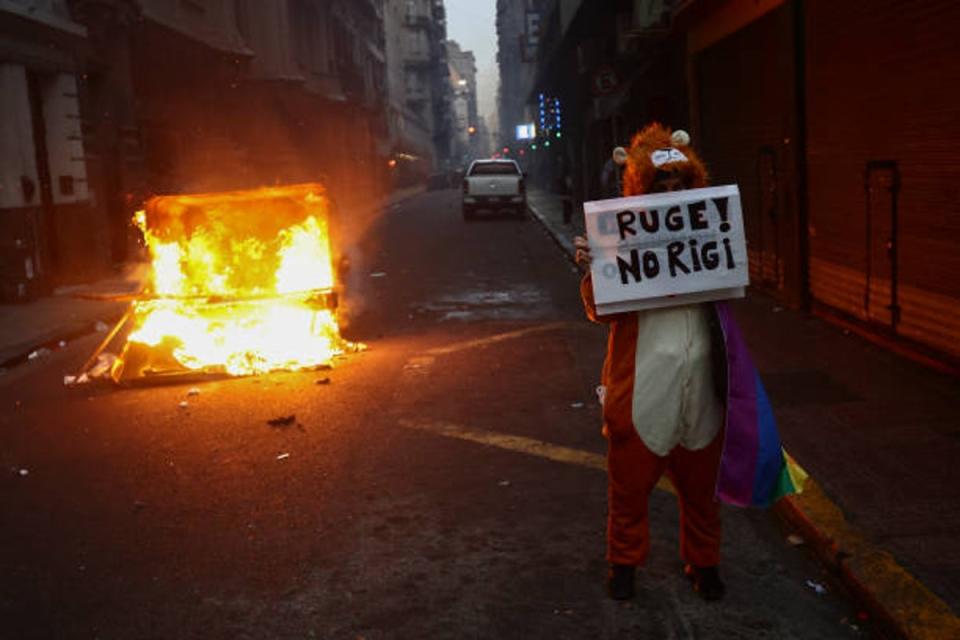
Launching fireworks and chanting, "Our country is not for sale!" bankers, teachers, truckers and workers from a slew of other trade unions held signs mocking Mr Milei for his self-proclaimed "anarcho-capitalist" agenda and drastic efforts to slash spending across the state. "How can a head of state hate the state?" one banner read.
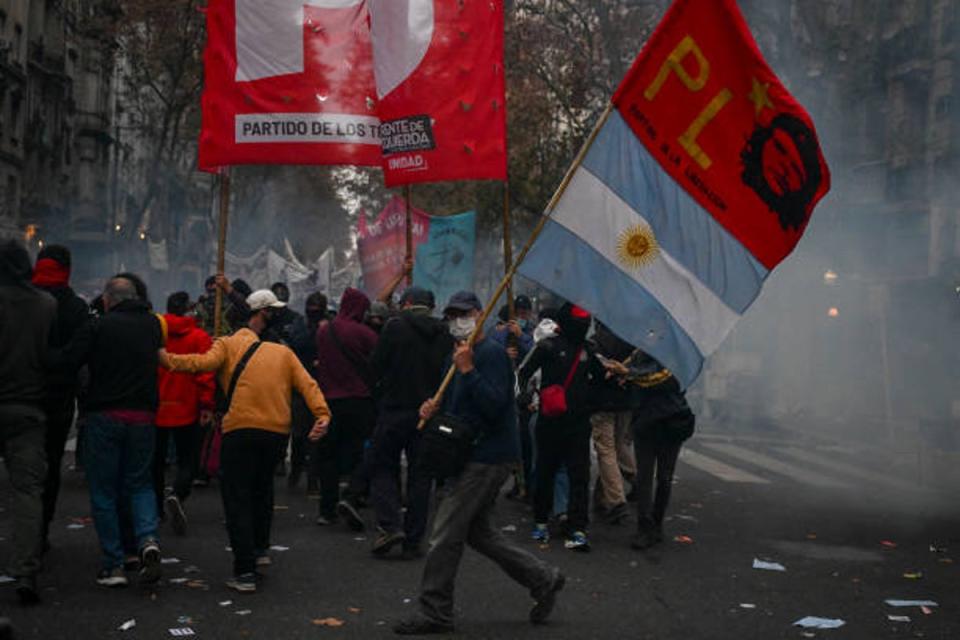
Analysts say that foreign investors and the International Monetary Fund, to which Argentina owes a staggering $44bn, are closely watching Wednesday’s vote to see whether Mr Milei can build consensus with his opponents to deliver on his ambitions.
Sovereign bonds have tumbled. The country’s currency, the peso, has depreciated as well, widening the gap between the official and black market exchange rate to nearly 40 per cent. The peso was trading at 1,255 per greenback on the informal market on Wednesday, a rate far lower than earlier this year.
Even as the IMF has praised Mr Milei’s agenda and released tranches of frozen loans, the fund has held back from striking a new deal with Argentina.
Additional reporting by agencies


